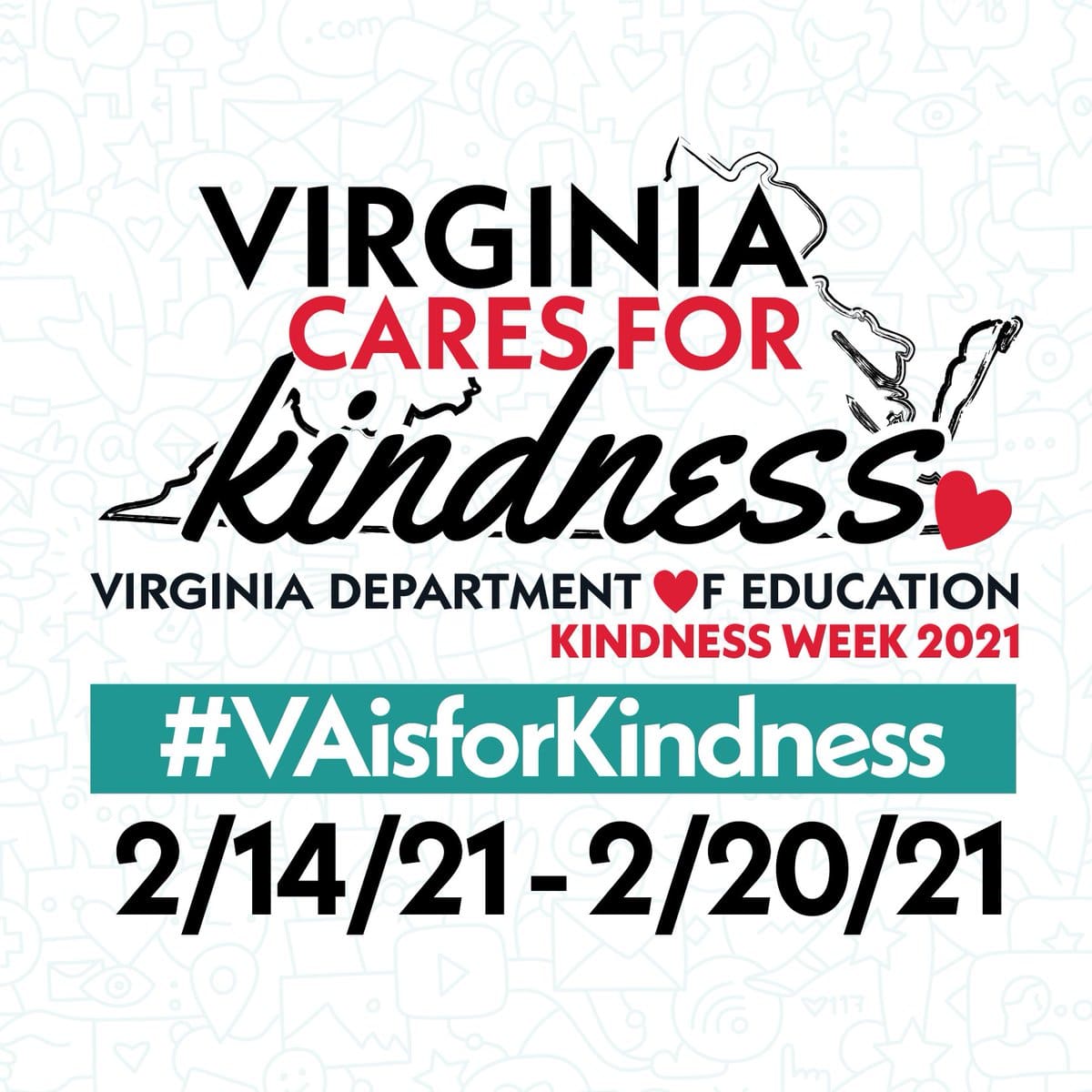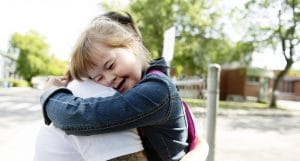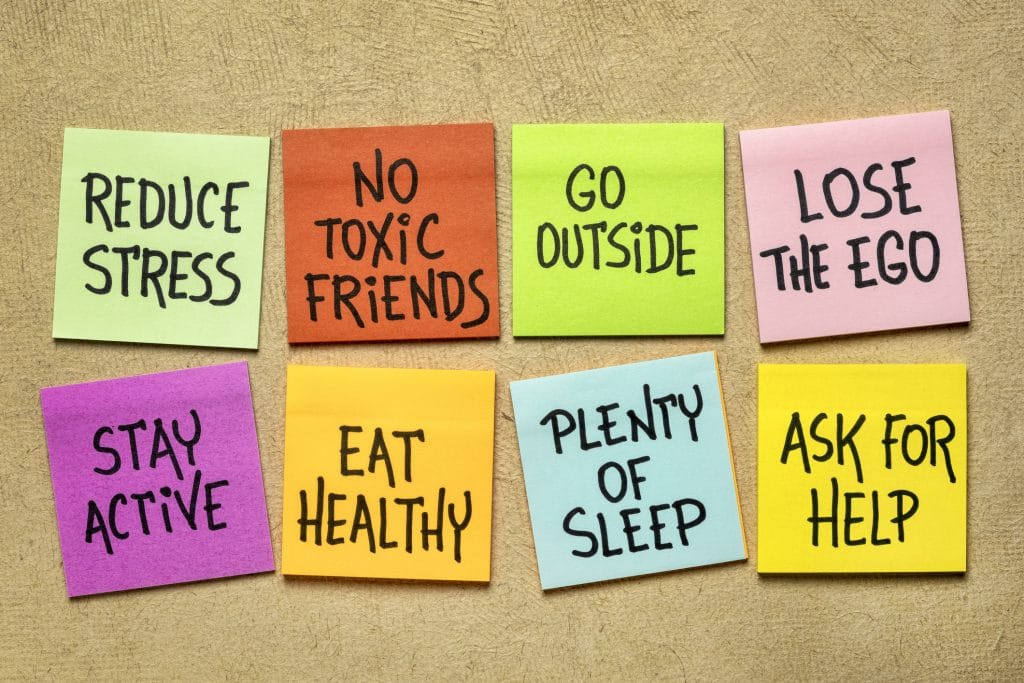Join VKRP in Celebrating Virginia Kindness Week!

A Little Kindness Goes a Long Way
We all remember that teacher who welcomed us to class each day and showed us the kindness and compassion that helped us to reach our full potential as students. Many of us became educators because of those fond memories of these special childhood teachers. Please join us this week in celebrating Virginia Kindness Week as we explore the research behind and resources to support teaching and promoting kindness!
 According to research covered in this 2017 New York Times article, there are scientifically proven benefits to being kind, and that kindness is actually teachable! Although the article was written well before the COVID-19 global pandemic, the takeaway still applies today – teaching kindness to students can help them cope when things are tough. As teachers and leaders participating in VKRP, you have the unique advantage of collecting information on your students’ social-emotional skills. This means that you have data showing how your students are coping during these turbulent times. We encourage you to use CBRS data to help identify students who may benefit from additional instruction and support in empathizing with and understanding others’ emotions in order to effectively engage with you, their teacher, and their peers. For example, a student’s ratings on the social play items on the CBRS, numbers 11-15, may assist in identifying particular students in your classroom who could benefit from lessons on kindness and empathy followed by opportunities to learn how to apply their skills in these areas. Below, we highlight additional resources you can use to help these students thrive!
According to research covered in this 2017 New York Times article, there are scientifically proven benefits to being kind, and that kindness is actually teachable! Although the article was written well before the COVID-19 global pandemic, the takeaway still applies today – teaching kindness to students can help them cope when things are tough. As teachers and leaders participating in VKRP, you have the unique advantage of collecting information on your students’ social-emotional skills. This means that you have data showing how your students are coping during these turbulent times. We encourage you to use CBRS data to help identify students who may benefit from additional instruction and support in empathizing with and understanding others’ emotions in order to effectively engage with you, their teacher, and their peers. For example, a student’s ratings on the social play items on the CBRS, numbers 11-15, may assist in identifying particular students in your classroom who could benefit from lessons on kindness and empathy followed by opportunities to learn how to apply their skills in these areas. Below, we highlight additional resources you can use to help these students thrive!
You CAN Teach Kindness
The old saying goes, “kindness breeds more kindness”. VDOE has outlined a wealth of resources, research, and challenges on their Virginia Kindness Week page that can help promote kindness for you and your students. Be sure to check out the Virginia Kindness Resource Fair with 13 different Kindness Initiatives, each with short video presentations, links to resources, and implementation information. Additionally, more resources relating to empathy and concern for others can be located on the ECE Resource Hub.
Like many adults currently, we also know our students may experience feelings of separation and isolation from their friends and family during this pandemic. It may be hard for them to express themselves in an appropriate manner, and therefore, kindness may not always be shown to others because of all of the big feelings they may be experiencing. The Social Emotional Wellness Guide speaks to this idea and lays out how the social-emotional well-being of our students can be influenced and changed by external factors. We encourage you to read through the entire guide, in particular focusing on the Essential Questions you can ask about the students in your care and the activities/resources linked in Wellness Control Panel.
students may experience feelings of separation and isolation from their friends and family during this pandemic. It may be hard for them to express themselves in an appropriate manner, and therefore, kindness may not always be shown to others because of all of the big feelings they may be experiencing. The Social Emotional Wellness Guide speaks to this idea and lays out how the social-emotional well-being of our students can be influenced and changed by external factors. We encourage you to read through the entire guide, in particular focusing on the Essential Questions you can ask about the students in your care and the activities/resources linked in Wellness Control Panel.
Finally, it’s critical that we acknowledge the importance of simply being kind to yourselves, the adults caring for these young children. As educators, it is critical that you focus on and take care of your own well-being as well and one of our prior blogs, Self-care and the Four R’s of Resilience, discusses tips on how you can do just that. We also encourage you to check out the following resources to find the kindness for yourself that you so deserve:

Focus on Emotional Well-Being
See video tips to support emotional well-being for teachers and parents

Headspace for Educators
Sign up for Headspace - it's free for all K-12 educators! It includes resources for you and your classroom

5 Self-Care Tips for Teachers
Useful tips from teachers on how to take care of yourself when things feel overwhelming
More questions? VKRP provides support via the online chat feature when you are in the system, via email vkrp@virginia.edu, and via toll free 866-301-8278 ext. 1